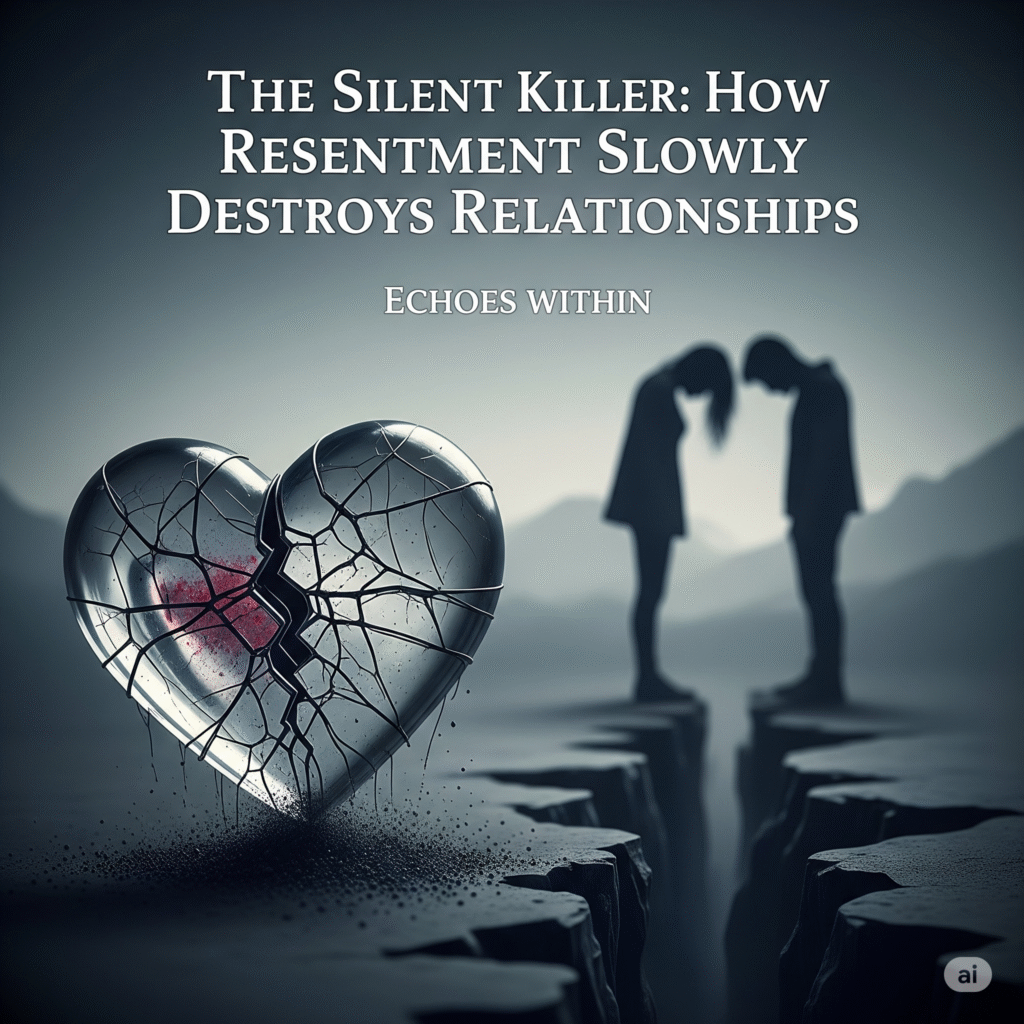How Resentment Is Poisoning Your Relationships
Resentment rarely arrives with a loud bang. It creeps in quietly—through unspoken words, unmet expectations, and unresolved conflicts—until it silently poisons even the strongest relationships. Left unchecked, it erodes trust, intimacy, and emotional safety. But by recognizing it early, you can stop it from destroying the bond you value most.
How Resentment Grows Under the Surface
Resentment is like a slow leak in a relationship’s foundation. It often starts small: a missed promise, repeated misunderstandings, or a feeling of being unheard. Over time, without honest conversations, these frustrations accumulate. What was once a single drop turns into a flood of silent bitterness.
The Hidden Signs You’re Carrying Resentment
Resentment doesn’t always look like open anger. Sometimes it appears as withdrawal, sarcasm, passive-aggressive behaviour, or emotional distance. You may notice yourself avoiding deep conversations or replaying past hurts instead of addressing them.
Why Resentment Is So Destructive
Resentment thrives in silence. When emotions are bottled up, they block vulnerability and trust. Eventually, your connection feels cold, and every interaction becomes clouded by unspoken tension. This makes even small disagreements feel heavier than they are.
Step One: Recognise and Name the Feeling
Awareness is the first step toward healing. Instead of burying frustration, acknowledge it. Naming resentment helps you address it before it becomes toxic.
Step Two: Communicate with Courage and Clarity
Healthy relationships depend on honest dialogue. Share how you feel without blame—use “I” statements instead of accusations. For example, say “I feel hurt when my effort isn’t acknowledged” rather than “You never appreciate me.”
Step Three: Choose Forgiveness and Release
Forgiveness doesn’t mean forgetting or excusing hurtful actions—it means releasing the grip resentment has on your emotional well-being. This opens space for empathy, understanding, and renewed connection.
Step Four: Rebuild Trust Through Action
Words matter, but consistent actions matter more. Show through your behaviour that you are committed to rebuilding trust—whether it’s by keeping promises, listening actively, or being emotionally present.
Moving Beyond Resentment
Resentment doesn’t have to be the end of a relationship. When addressed openly, it can lead to deeper understanding, stronger communication, and a healthier bond. The key is not to let silence do the damage.
Key Takeaway:
Resentment is a silent killer of relationships, but with awareness, communication, and forgiveness, you can heal and create a stronger, more connected relationship.
Reference Link:
Beyond Notifications: Reclaiming Your Focus and Taking Back Control in a Distracted World
The Eisenhower Matrix in Action: Prioritise Like a Pro and Eliminate Overwhelm
The 80/20 Rule in Action: Maximising Results with Minimal Effort
Energy Management, Not Time Management: The Secret to Sustainable Productivity


Pingback: The Imposter Syndrome: Why We Feel Frauds & How to Overcome
Pingback: Doomscrolling: Why We Can’t Stop Reading Bad News